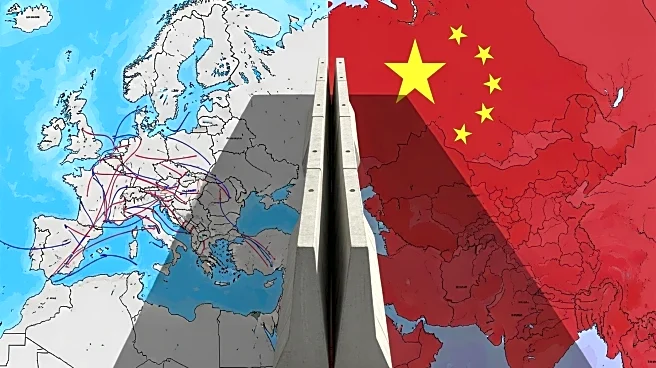What's Happening?
Poland has indefinitely closed its border with Belarus, disrupting a major trade route between China and the EU. This decision follows heightened security concerns due to Russian-Belarusian military exercises. The closure affects the China-Europe Railway Express, a key component of China's trade with Europe, which moves 90% of rail freight between the two regions. The move is seen as a shift from trade logic to security priorities, influenced by diplomatic tensions and pressure from the U.S. to penalize China for its support of Russia.
Why It's Important?
The border closure could have significant economic repercussions, potentially choking a €25 billion trade artery. It may lead to increased costs and delays for businesses relying on this route, affecting supply chains and international trade dynamics. The decision also reflects broader geopolitical tensions, with the U.S. supporting Poland's stance as part of its strategy to counter China's influence. This situation underscores the complex interplay between security concerns and economic interests in global trade.
What's Next?
The closure may prompt China to seek alternative routes, potentially through Lithuania or Latvia, though these options are more costly and uncertain. The EU and China may engage in diplomatic negotiations to resolve the issue, while the U.S. may continue to exert pressure on European allies to maintain a hardline stance against China. The situation could lead to shifts in trade policies and alliances, impacting global economic relations.
Beyond the Headlines
The closure highlights the strategic importance of trade routes in geopolitical conflicts, where economic leverage is used to achieve security objectives. It raises questions about the sustainability of global supply chains in the face of political instability and the need for diversified trade strategies.










